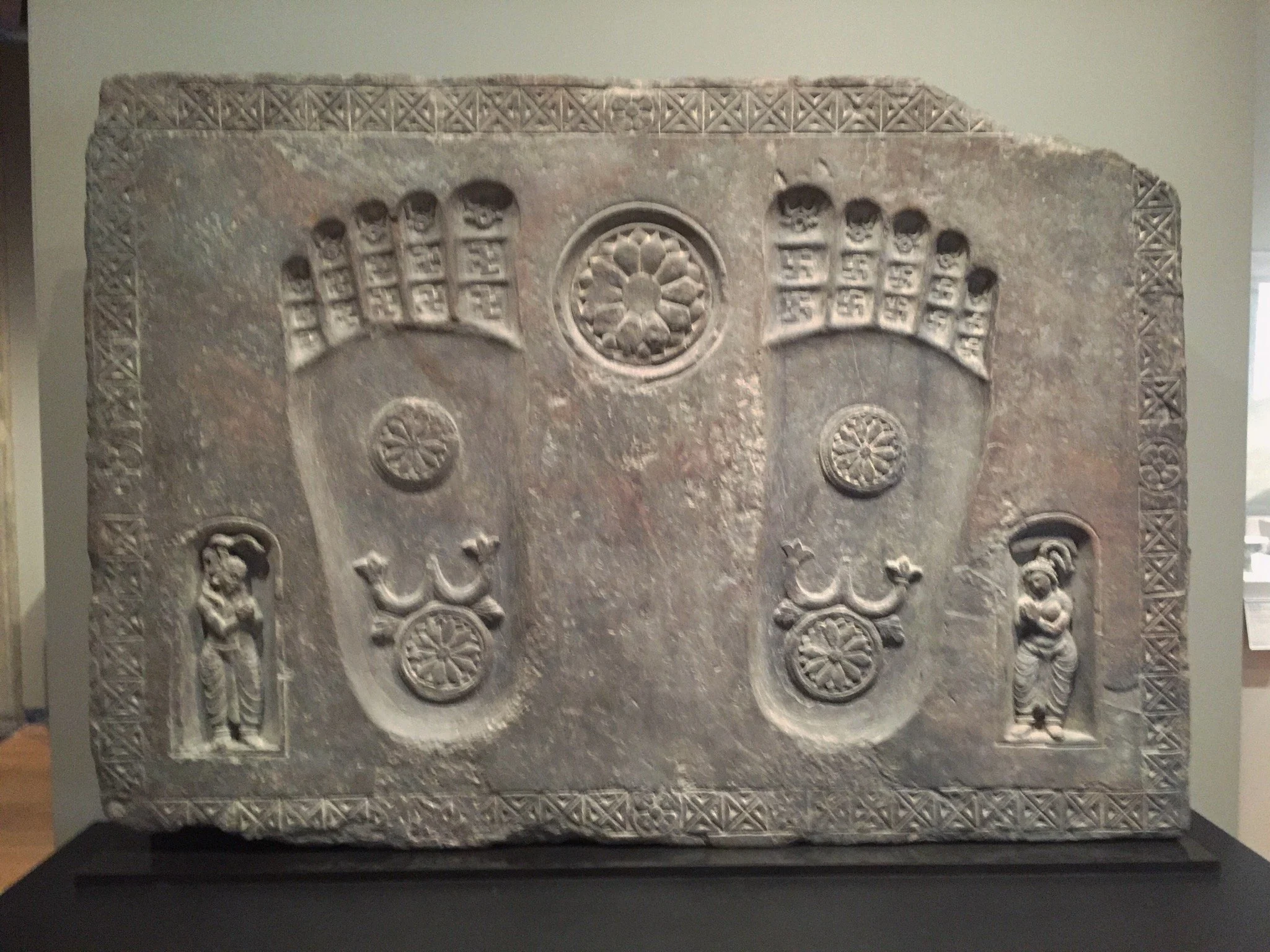A distraught woman, Kisa Gotami, (Gotami Sutta) laid her dead child at the Buddha’s feet. With compassion he told her gently that the only way to heal her pain was to go and bring back a mustard seed from each house that has never experienced death. After four or five tries, she realized what truly needed to be done. She took the body of her son to the charnel grounds and returned to the Buddha. She told him that she now realized that grief had blinded her into thinking only she has suffered such pain. She told him she returned to him for instruction into the meaning of truth. As he began to teach her about the nature of impermanence and change, he told her that her grief had softened her heart and made her ready to hear the truth.
The Buddha was not telling her insensitively to suck it up because her loss is no different from anyone else’s; rather, I think, he was trying to get her to face her grief head on, without relying on any painless solution or petition. Only she could bring herself some peace.
Does the universality of death cure grief any quicker than other methods? Grief or any suffering sure does break one’s heart, making it more vulnerable and perhaps more open to avenues of healing. But does it render grief a useful meditation on the intangible and fleeting? Maybe, eventually. But in any scenario, there is no way around the anguishing work, if true healing is to come.
It would seem a middle way would have to include a respect for grief resolution of its own time.
This week marks the 12th anniversary of my brother-in-law’s death. He was only 35 and obviously it was shocking, shattering news for my wife. To her credit, and my admiration, she did not shrink from that trauma, but faced it, felt what she felt on any given day, be it searing pain or reflective storytelling. She was later able to share her experience by founding a grief support group. She could have easily just fallen apart and remained in pieces until she slowly brought herself back together again; that would have been ok too. As with any painful experience, the goal isn’t to “do something with it” or to fully move on; living with a trauma may always be with you but giving yourself the space to truly feel that loss, perhaps expressing it to someone, might be a way to take it with you on your own terms, rather than have it sweep you away.
In Korean Zen our foundational practice is keeping a “Don’t-Know Mind.” It is a way of resting in the ambiguity of the moment, not in indifference but in curiosity; open to whatever may arise, we may then be capable of acting in that moment in a skillful helpful way. Or at least a reaction not driven by fear or self-interest. Openness is another word for vulnerable; ambiguity can often be another word for anguish. Of course, “facing” or “sitting” your pain sucks, and some pain is not easily softened by doing what needs to be done to get through it. There is no shame in asking for help. Professional or otherwise, to disperse your pain. “Don’t Know Mind” can help us be comfortable with the uncomfortable, if nothing else. Good and bad will happen anyway, are happening right now. Grief or loss are times when notions of Impermanence become violently real. It is not a comfort to know every other being that ever existed suffers the same pains. With help, time, and hopefully support, some of us just wake up one day, still in pain, but with a better handle on it. It is there but a bit softer. Questioning your sanity or capacity to endure is, in a way, a demonstration of sanity and strength, even if it is impossible to see that most of the time. While grieving, grieve. To the degree that you are able, in that moment, you are handling it. The next, new moment is always coming right up.
